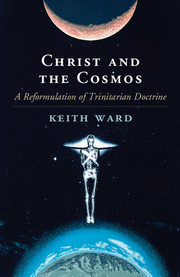Book contents
- Frontmatter
- Contents
- Preface
- Acknowledgements
- PART I THE THREEFOLD NATURE OF THE DIVINE BEING
- PART II THE BIBLICAL SOURCES OF TRINITARIAN THOUGHT
- PART III THE TRINITY, IMMANENT AND ECONOMIC
- PART IV THE SOCIAL TRINITY
- 22 Persons and Substances
- 23 The Idea of a Personal and Free Creation
- 24 The Logical Uniqueness of Persons
- 25 The Divine Nature and Freedom
- 26 Freedom in God and in Creatures
- 27 Persons as Necessarily Relational
- 28 An Ontology of the Personal?
- 29 Intra-Trinitarian Love
- 30 Infinite Gods
- 31 Divine Love and Necessity
- 32 Love and Alterity
- 33 Trinity versus Monotheism
- 34 The Passion of Christ
- 35 God and Abandonment
- PART V THE COSMIC TRINITY
- Bibliography
- Subject Index
- Name Index
24 - The Logical Uniqueness of Persons
from PART IV - THE SOCIAL TRINITY
Published online by Cambridge University Press: 05 September 2015
- Frontmatter
- Contents
- Preface
- Acknowledgements
- PART I THE THREEFOLD NATURE OF THE DIVINE BEING
- PART II THE BIBLICAL SOURCES OF TRINITARIAN THOUGHT
- PART III THE TRINITY, IMMANENT AND ECONOMIC
- PART IV THE SOCIAL TRINITY
- 22 Persons and Substances
- 23 The Idea of a Personal and Free Creation
- 24 The Logical Uniqueness of Persons
- 25 The Divine Nature and Freedom
- 26 Freedom in God and in Creatures
- 27 Persons as Necessarily Relational
- 28 An Ontology of the Personal?
- 29 Intra-Trinitarian Love
- 30 Infinite Gods
- 31 Divine Love and Necessity
- 32 Love and Alterity
- 33 Trinity versus Monotheism
- 34 The Passion of Christ
- 35 God and Abandonment
- PART V THE COSMIC TRINITY
- Bibliography
- Subject Index
- Name Index
Summary
One feature that is said to make persons ontologically distinct from and prior to substances is that persons, including divine persons, are said to be logically unique, irreplaceable, and unrepeatable – properties which are not supposed to be possessed by ‘substances’, since substances are instances of a general kind. At least in the case of divine persons, Zizioulas claims that there is no general nature of which a person is one instance. This distinction, however, is logically odd, because every substance is logically unique in that a complete description of any substance, including such things as its position in time and space and its location in a particular universe, will be unique. If this is denied, on the ground perhaps that there could be two complete universes containing qualitatively identical substances, then it will be true of persons, also, that there could logically be qualitatively identical persons in every respect in different universes. So there is not a great difference between persons and substances such that substances are instances of general kinds and persons are not. Despite what Aquinas says, even God, who is unique, is unique because he is the only possible instance of the general kind, ‘creator of everything other than itself’. So persons are not distinguished from natures and substances by being the only possible cases of the individuals they are.
Of course there is an important difference between personal and non-personal substances. Persons, but not rocks, have an inner life. Persons act freely and creatively, and they integrate their experiences in a way that has its own feeling-tone and subjective form of apprehension. Persons are agents and subjects of experience, and are creatively autonomous. It is this inner consciousness and creative freedom which gives persons moral and spiritual importance. That is precisely their nature as substances of a particular kind. Even though I have argued that God is not a person, but is supra-personal, God may well possess a unique inner consciousness (intuitive knowledge of all possible and actual states) and creative freedom (as creator of everything but itself).
- Type
- Chapter
- Information
- Christ and the CosmosA Reformulation of Trinitarian Doctrine, pp. 155 - 157Publisher: Cambridge University PressPrint publication year: 2015



